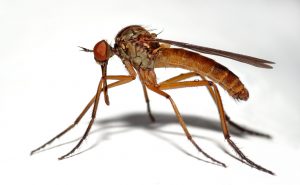 There are a few lucky people that are rarely bitten by mosquitoes. Most people have to deal with mosquito bites, and then there are the unlucky people who seem to attract mosquitoes more than anyone else. There are certain things that make you more attractive to mosquitoes.
There are a few lucky people that are rarely bitten by mosquitoes. Most people have to deal with mosquito bites, and then there are the unlucky people who seem to attract mosquitoes more than anyone else. There are certain things that make you more attractive to mosquitoes.
Blood Type
Mosquitoes are more attracted to people who have O blood. This means that you are more prone to mosquito bites than people who have the other blood types. There is not anything you can do to change this, but it is a determining factor in attracting mosquitoes.
Higher Resting Metabolic Rate
People with a higher resting metabolic rate tend to attract more mosquitoes. Pregnant women and people who are overweight tend to have a higher resting metabolic rate. Regular exercise and a healthy diet can help you lower your metabolic rate, but it can take time to do this.
Amount of Lactic Acid You Emit
Different people naturally produce different amounts of lactic acid which attracts mosquitoes. If you notice that you seem to end up with more mosquito bites, you may naturally produce more lactic acid. Again, this is ruled by your genetic makeup and there is not a lot that you can do to change it.
Dark Clothing
One thing that you can control is that mosquitoes are more attracted to people who wear dark clothing. If you know that you will be spending a lot of time outside, you may want to opt for lighter colored clothing. This may make a bit of a difference.
Stop Mosquito Bites
The most effective way you can stop mosquito bites is to use insect repellents, especially those that contain DEET. You can also treat your yard to stop mosquitoes from biting you while at home. In fact, if you are one of those unlucky people that seems to attract mosquitoes, treating your yard may give you the opportunity to enjoy time outdoors again.
Comments
Post a Comment